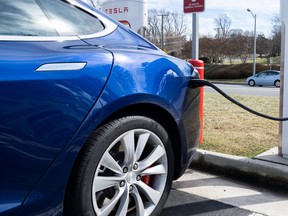The article discusses the challenges of replacing declining gas taxes as electric vehicles (EVs) become more popular in Canada. The government wants 100% of new vehicles to be zero-emission by 2035, but this will significantly reduce gas tax revenues. The article explores different ideas for replacing gas taxes, including:
- Charging EV owners a flat fee: This is one idea being considered, but critics argue that it’s arbitrary and doesn’t take into account the weight or usage of the vehicle.
- Fee-based system based on distance driven: This would involve charging drivers based on how much they drive, rather than the type of vehicle they own.
- Indexing fuel taxes to inflation: This would stabilize gas tax revenues by automatically adjusting them for inflation.
The article also notes that a more complex solution is needed, as EVs are not just about driving, but also about charging and using electricity. Simply putting a tax on electricity may not be effective or feasible.
Some experts suggest implementing a system that charges drivers based on how much they drive, similar to the voluntary program in Utah. Others recommend indexing fuel taxes to inflation to stabilize revenue streams.
Ultimately, the article concludes that policymakers need to find a solution to replace declining gas taxes as EVs become more popular in Canada.
Key points:
- Gas tax revenues are declining due to increasing EV adoption
- Different ideas for replacing gas taxes include charging EV owners a flat fee or implementing a fee-based system based on distance driven
- Indexing fuel taxes to inflation is another proposed solution
- A more complex solution that takes into account the unique characteristics of EVs and electricity usage is needed.
Questions:
- What are some potential challenges in replacing declining gas taxes with alternative revenue streams?
- How could a fee-based system based on distance driven be implemented in Canada?
- What are the pros and cons of indexing fuel taxes to inflation?
Answer:
The article provides a detailed analysis of the challenges and potential solutions for replacing declining gas taxes as EVs become more popular in Canada. It explores different ideas, including charging EV owners a flat fee or implementing a fee-based system based on distance driven, as well as indexing fuel taxes to inflation. The key takeaway is that policymakers need to find a solution that takes into account the unique characteristics of EVs and electricity usage.
Related topics:
- Electric vehicles
- Gas tax revenues
- Alternative revenue streams
- Fee-based systems
- Indexing fuel taxes to inflation




